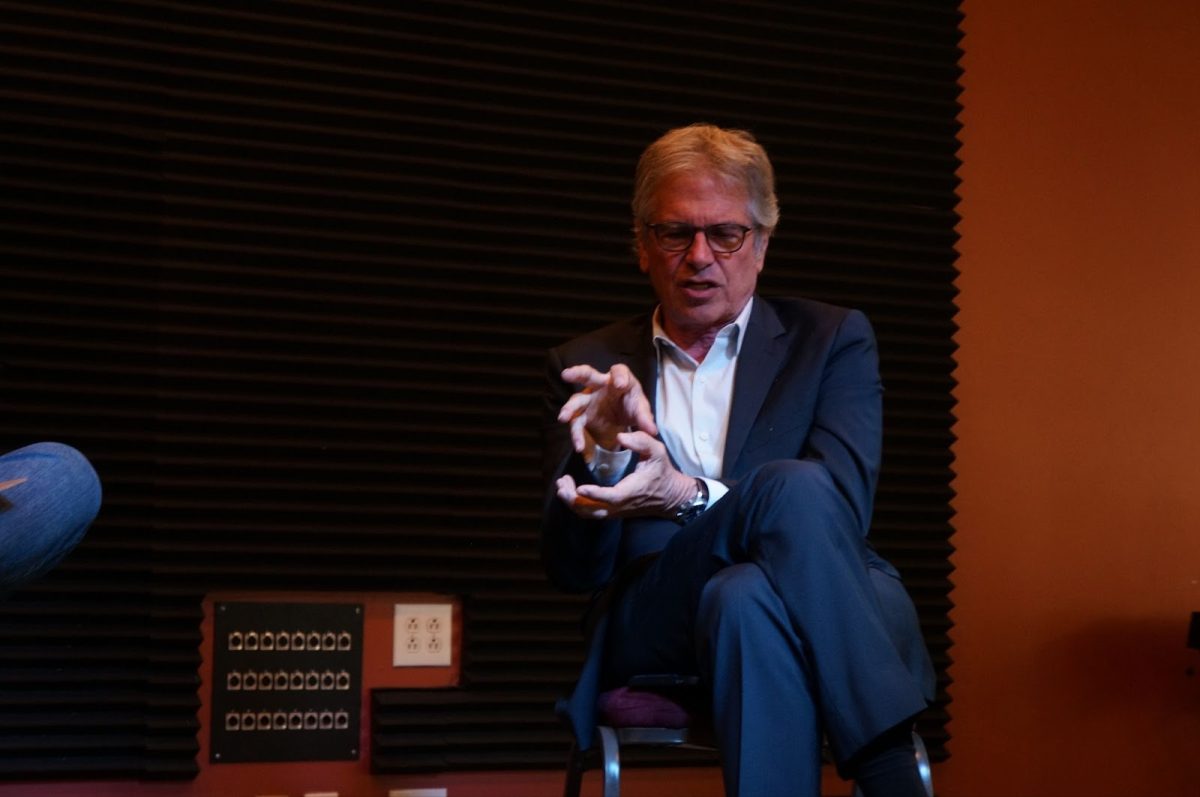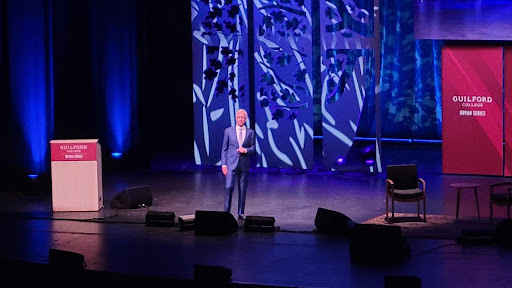War journalist, Pulitzer Prize winner and author of multiple books Chris Hedges had been invited to speak at the University of Pennsylvania at a peace conference on April 3. That is until one particular article of his was published on Truthdig, a long journalism news site.
According to an email from a member of Pennsylvania’s International Affairs Association student group, the invitation was revoked because he would not “be suitable as a coexistence speaker based on this stance he’s taken.”
“He had written a column that compared Israel to ISIS,” said CCE junior and peace and conflicts studies major Michelle Harris. “Criticism of Israel is equated with anti-Semitism.”
In a later article, Hedges responded to his revoked invitation.
“The charge of (University of Pennsylvania student Zachary Belnavis) and the International Affairs Association that I do not believe in coexistence between the Palestinians and Israel is false,” wrote Hedges. “I oppose violence by either party.”
Just a day before Harris learned of Hedge’s revoked invitation, Peace and Conflict Studies Chair and Visiting Professor Jeremy Rinker had asked Harris for any suggestions for speakers for the annual Fleming lectures, sponsored by the PECS department. Harris, who regularly follows Hedges’s column on Truthdig, sent him an invitation.
“To me, it seems really important to support people who have been disinvited for speaking the truth,” said Harris. “If you bring someone to Guilford that I don’t agree with, I have an opportunity to ask questions . . . and have a dialogue.
“(There is) no opportunity to create dialogue where you might come to an agreement (if you prevent them from coming to speak in the first place.)”
Hedges accepted the invitation and spoke on April 2 as a part of the Fleming lecture series. His talk focused on America’s history of violence, particularly vigilante violence, and the need for rebellion and revolution.
“Tonight’s talk was (focused on) how violence works in American society and that our tradition is one where we don’t use violence against the state,” said Hedges in an interview with The Guilfordian.
Hedges explained how this tradition needs to be altered, albeit without violence, in order to break down state-sponsored violence against weaker groups of people, such as minorities and radicals, and to put put pressure during times of distress on groups with power, such as corporations, in order to eliminate corruption. Furthermore, he explained that the existing structure of violence widens inequalities between more powerful and less powerful groups.
Hedges also met with interested students, staff and faculty the following day for a lunch meeting during which he had an open discussion. Those present asked questions about the actions he takes in his work towards awareness about the effects of war on society.
Junior Leah Meservey, a community justice studies and psychology double major, attended the lunch.
“He talked about the work that he’s done, despite a lot of criticism, about being so radical (in) bringing awareness about war and what we want to do about it as a people so our voices are heard,” said Meservey. “He talked about his participation in the newspaper (in college), through which he made radical and extreme publications on social justice issues.
“A lot of it was criticized by the school, but he was doing it for what he believed in and would not let anyone stop him, so I really admired that.”
Both in his talk on Thursday night and at the Friday lunch, Hedges discussed the power of mass movements directed at the state and those in power, such as the Occupy movement, to redistribute power evenly and to break down traditions of violence in America against certain groups of people.
Rinker, who has helped organize the Fleming lectures since he came to teach at Guilford in 2011, was pleased to have Hedges as a part of the Fleming lecture series.
“I think he’s one of these public intellectuals who is trying to challenge our apathy, and the values we hold and we don’t interrogate,” said Rinker.
This was the first time a Fleming Lecture speaker has been invited by an interested student. Rinker hopes that this gesture precipitates more widespread student and staff involvement and awareness of the Fleming lectures, so that curious students can suggest particularly relevant speakers in the future.







hmp49 • Apr 11, 2015 at 1:53 pm
If you want to compare ISIS to Israel, why don’t you compare the outrage among all those great humanitarians who critize Israel to their criticisms of ISIS?
crickets.
Hedges been completely discredited as a “reporter”
“Three of Hedges’ most cited articles were based upon the stories of Iraqi defectors who had been furnished to Hedges by the Information Collection Program of the US-funded Iraqi National Congress.[15] The program promoted stories to major media outlets in order to orchestrate US intervention in Iraq in the aftermath of 9/11. Most significant was a November 8, 2001, front page story about two former Iraqi military commanders who claimed to have trained foreign mujahedeen how to hijack planes without using guns.[16] Hedges quoted a man he believed to be an Iraqi general as saying, “These Islamic radicals … came from a variety of countries, including Saudi Arabia, Yemen, Algeria, Egypt and Morocco. We were training these people to attack installations important to the United States.” The two defectors also asserted there was a secret compound in Salman Pak facility where a German scientist was producing biological weapons.[17]
According to Mother Jones, “The impact of the article … was immediate: Op-eds ran in major papers, and the story was taken to a wider audience through cable-TV talk shows. When Condoleezza Rice, then George W. Bush’s national security adviser, was asked about the story at a press briefing, she said, ‘I think it surprises no one that Saddam Hussein is engaged in all kinds of activities that are destabilizing.'” As late as 2006, conservative magazines including The Weekly Standard and National Review continued to use the story to justify the invasion of Iraq.[18]
It later surfaced that the story was “an elaborate scam”. The defector Hedges quoted, who identified himself as Lt. General Jamal al-Ghurairy, was actually a former sergeant, and the real Ghurairy had never left Iraq. Hedges said that he had taken the story at the request of Lowell Bergman of Frontline, who wanted the defectors for his show but could not go to Beirut for the interview. The trip had been organized by Ahmed Chalabi, who Hedges himself considered to be unreliable. Hedges said he had done the story as a favor to Bergman, explaining, “There has to be a level of trust between reporters. We cover each other’s sources when it’s a good story because otherwise everyone would get hold of it.” For further confirmation of the man’s identity, Hedges had relied on the US embassy in Turkey”
http://en.wikipedia.org/wiki/Chris_Hedges